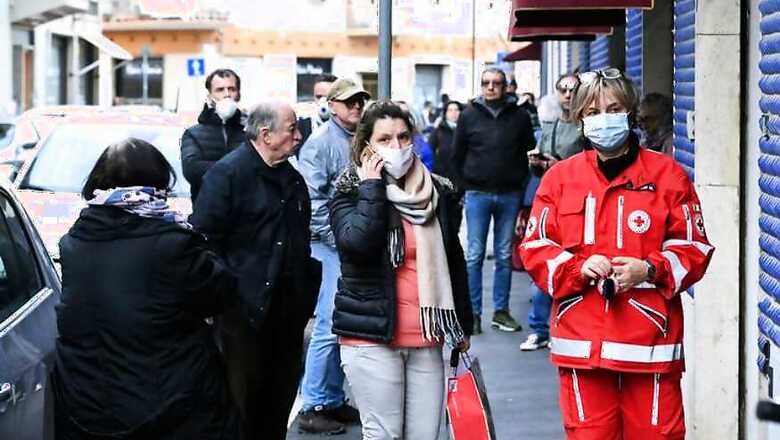
views
The Hague: From trafficking dodgy surgical masks to peddling counterfeit medicines and running internet scams, criminals are finding ways to profit from the coronavirus crisis, European police warn.
With billions of people under lockdown in their homes and borders shut, police chiefs say criminals are finding it hard to make money out of "traditional" activities like burglary and drug smuggling.
Instead they are preying on people's fears of the COVID-19 pandemic to sell them substandard protective goods or trick people out of their cash online, warned Europe's police agency Europol.
"Criminals are just interested in one question: 'how can I make more money?'," Europol director Catherine De Bolle told AFP in an interview.
"This is why they are now abusing the pandemic to change their way of working." Police around the world seized 34,000 counterfeit surgical masks in one major operation targeting so-called "corona criminals" earlier this month, Europol said in a report Friday.
"Fraudsters have been very quick to adapt well-known fraud schemes to capitalise on the anxieties and fears of victims throughout the crisis," the report added.
In many European countries, police have reported a dramatic drop in common criminal behaviour.
Spanish police said there had been a roughly 50 percent drop in criminal offences compared to a year earlier since the country was put on a near total lockdown on March 14. "There is no doubt that confinement makes crime more difficult," said the deputy director of Spain's Guardia Civil police force, Laurentino Cena.
Sweden too said it had seen burglaries drop since people were asked to work at home. Sales of street drugs have also dropped sharply in many countries since the outbreak as authorities shut borders and restrict the movement of people.
But the flip side of the coin is a rise in other forms of crime trying to profit on the back of the disease.
Austria's Interior Minister Karl Nehammer said this week that "we see a decrease in breaks-ins, burglaries, but at the same time cybercrime is on the rise". Online fraud was exploding across Europe, several agencies and police forces said.
The World Health Organization, at the forefront of the fight against the pandemic, has warned of a sharp increase in email phishing and scams using its name to try to steal money and sensitive information.
Britain's National Crime Agency said criminals "target people who seek to buy medical supplies on the internet, sending emails offering fake medical support and defrauding people who may be vulnerable or increasingly isolated at home".
In Germany too, "cybercriminals are exploiting people's current concerns about COVID-19 to send phishing emails with malicious content or use this fear with fraudulent intent", police said.
Fears were growing in Italy, the country worst hit by the virus, that small businesses short of money due to the crisis will turn to the mafia to save them.
In Denmark, the government has promised high sentences for people who steal hydro-alcoholic gel and burglars posing as health workers of paramedics.
Police have also warned people to be on the lookout for burglars wearing protective masks who claim to be carrying out coronavirus tests in order to steal from homes, particularly those of the elderly.
There was also a rising threat of sexual predators who prey on young people who are spending more time in front of screens at home, officials warned. "We've had tips of webpages where perpetrators are discussing how the situation we are in now can be exploited," Anna Karin Hildingson Boqvist, head of the child rights group ECPAT in Sweden, told AFP.
With families confined to their homes, there are also fears of a surge in domestic violence.
Some French police stations have seen a more than 30 percent increase in such reports since the country's lockdown began on March 17, according to Interior Minister Christophe Castaner.
The coronavirus outbreak is also behind a rise in anti-social behaviour.
The pandemic "could bring out the worst in humanity", Britain's National Police Chiefs Council warned, citing the theft of oxygen cylinders at a Manchester hospital.
Police in Britain and Austria have recently arrested people for coughing or spitting on people while claiming to be infected.



















Comments
0 comment